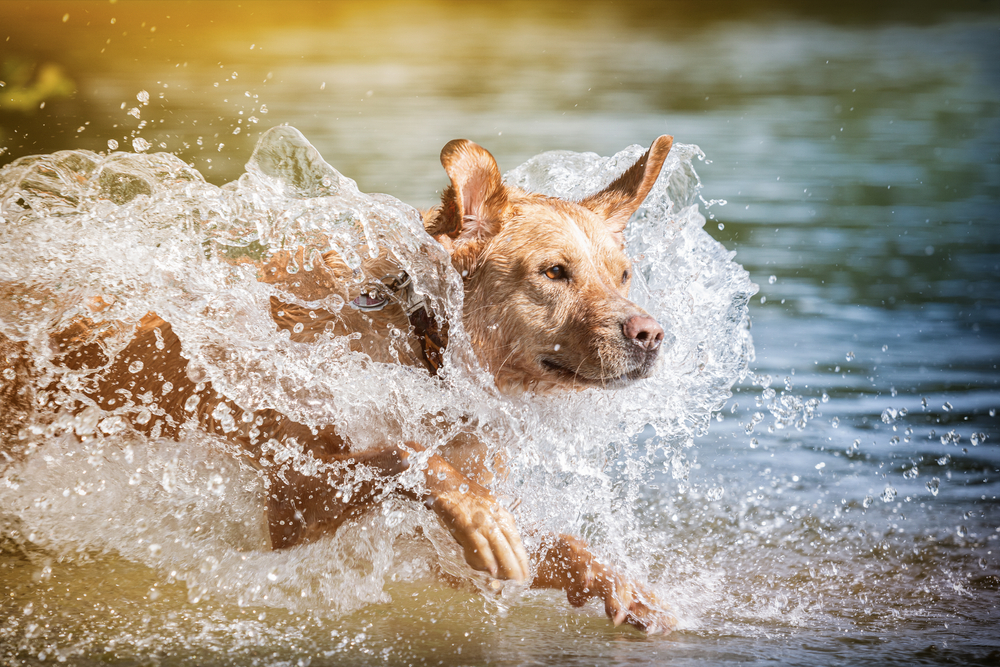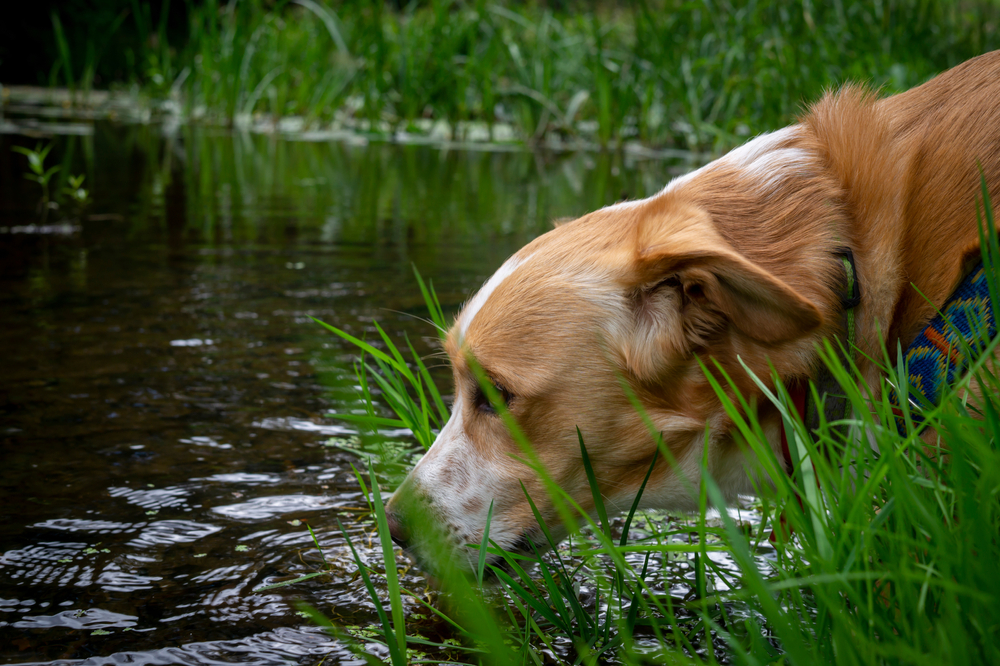Parasites are unavoidable—at some point, unfortunately, your dog will likely face parasitic skin or intestinal infections. Giardia is the most common intestinal parasite and affects from 8% to 45% of dogs in a given area or population. Infected dogs don’t always get sick, but can still spread the disease to others. The Oliver Animal Hospital south Austin veterinarians share more facts about Giardia in dogs.
Fact #1: Giardia is easily spread among dogs
Giardia is a single-celled intestinal parasite that spreads differently from other parasites, such as intestinal worms. Worms lay eggs that pass in the dog’s stool into the environment, but they aren’t “infective” right away and have to mature for a few weeks before they can infect another pet. Giardia starts in the trophozoite form, in the intestines, and then morphs into the cyst form, which passes into the environment with the stool and infects others. Giardia cysts are infective immediately, so dogs can easily pick them up directly from another dog, or in areas that other dogs frequent, like the dog park, local pond, or forest preserve.
Fact #2: Giardia thrives in cool, moist environments
So many dogs become infected with Giardia because the cysts can survive in the environment for a long time. They like cool, moist environments, such as standing water, lakes, ponds, and moist soil, especially in cooler climates, and not only can remain infective, but also can thrive there for months. Check out the Companion Animal Parasite Council’s (CAPC) incidence map to see how many dogs in your area could be carrying and spreading Giardia.

Fact #3: Giardia affects each dog differently
Dogs who ingest Giardia cysts can get sick, or carry the disease without any appreciable symptoms. Dogs who develop giardiasis can have acute, intermittent, or chronic watery diarrhea and can pass cysts in their stool and infect other dogs, whether or not they get sick—yet another reason why Giardia is so common among dogs.
Fact #4: Giardia subtypes selectively infect species other than dogs
You may have heard that you can get Giardia from your dog, but research has proven that this is unlikely. Giardia has many subtypes, and each type prefers different species. The type that infects dogs is unlikely to infect a human, although people with compromised immune systems, such as young children, seniors, or people receiving chemotherapy, are at higher risk. You don’t need to isolate your dog who tests Giardia-positive from family members, but you should take precautions, like washing your hands after handling your dog or cleaning up their stool.
Fact #5: Routine fecal testing can detect Giardia infections
The best way to detect Giardia in dogs with or without symptoms is through a simple, routine fecal flotation test performed by our partner laboratory. Giardia cysts will be visible under the microscope in infected pets who are actively shedding cysts into the environment. Sick pets with active diarrhea may need an additional fecal antigen or PCR test that detects cellular Giardia components, because the cysts are harder to detect in loose stools. These additional antigen or PCR tests are not recommended in healthy, asymptomatic pets, because old or insignificant infections in pets who are not actively shedding cysts and do not need treatment could still test positive.
Fact #6: Giardia treatment eliminates symptoms but may not clear the infection
A three- to five-day medication course is recommended for all pets with active symptoms. A follow-up test should show the dog is cyst-free—if not, another treatment round is typically performed. Not every dog who tests positive requires treatment, which depends on their history and lifestyle. Our team will always discuss treatment options for your dog, so we can decide together on the best treatment plan.
Fact #7: Giardia reinfections are common in dogs
Some dogs cannot seem to clear their infections and are continuously reinfected by the hardy, persistent cysts in their environment. Always pick up stools right away to prevent soil contamination and thoroughly clean indoor areas that your dog frequents. A bath at the end of your pet’s treatment to remove cysts that could be attached to their fur is also helpful.
Giardia is a truly ubiquitous parasite with a high prevalence in dogs—and many other species—across North America and globally. The Oliver Animal Hospital team recommends routine fecal parasite testing at least once per year for all dogs and more frequently for puppies and highly social, high-risk dogs. Call us to schedule your pet’s next wellness examination, fecal parasite test, and parasite control consultation.







Leave A Comment